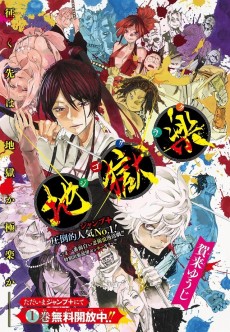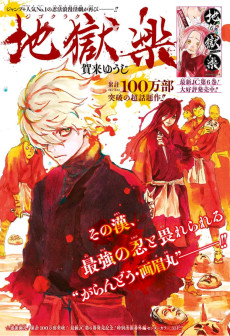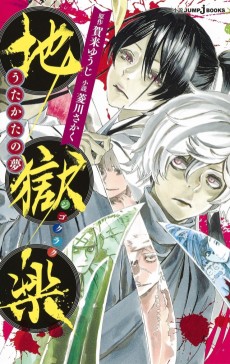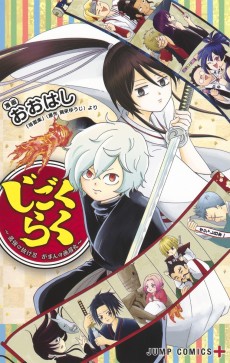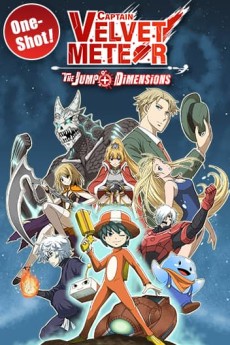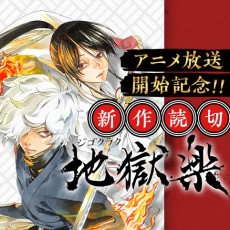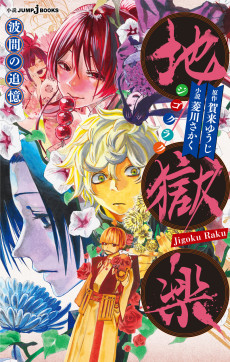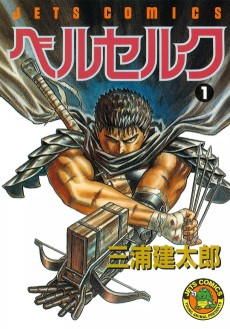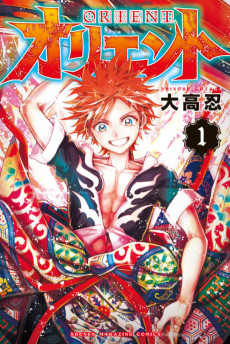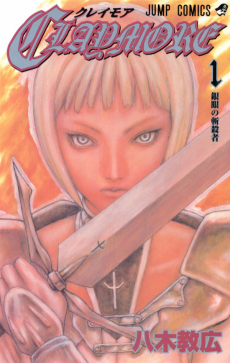JIGOKURAKU
STATUS
COMPLETE
VOLUMES
13
RELEASE
January 25, 2021
CHAPTERS
127
DESCRIPTION
Gabimaru the Hollow is one of the most vicious assassins ever to come out of the ninja village of Iwagakure. He’s ruthlessly efficient, but a betrayal results in him being handed a death sentence. He has only one hope—in order to earn his freedom, he must travel to a long-hidden island and recover an elixir that will make the shogun immortal. Failure is not an option. On this island, heaven and hell are just a hair’s breadth away.
(Source: Viz Media)
CAST
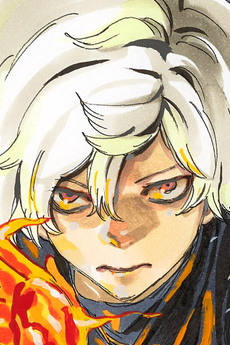
Gabimaru
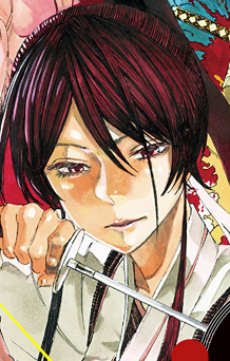
Sagiri
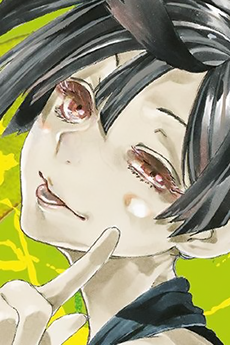
Yuzuriha
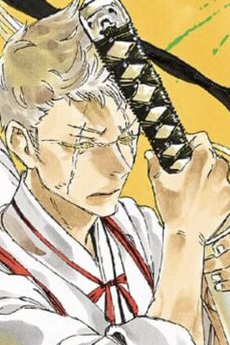
Shion
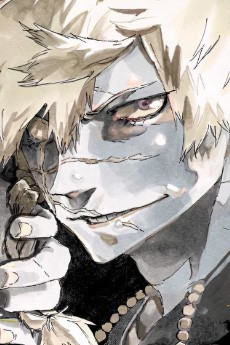
Choubei Aza
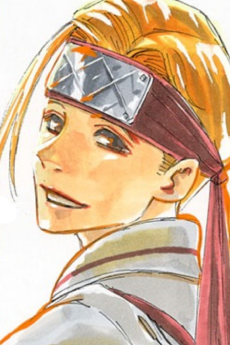
Tenza
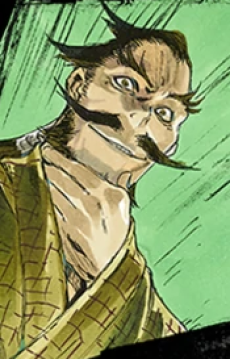
Gantetsusai Tamiya

Fuchi
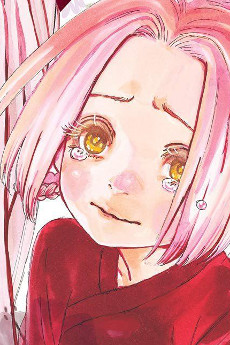
Mei
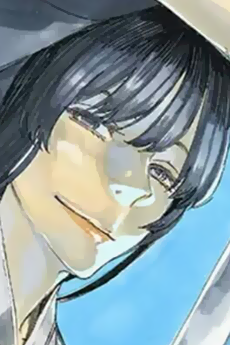
Touma

Nurugai
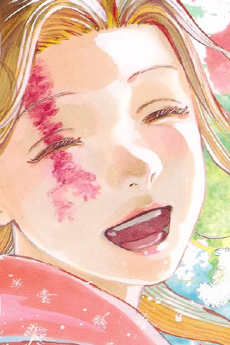
Yui
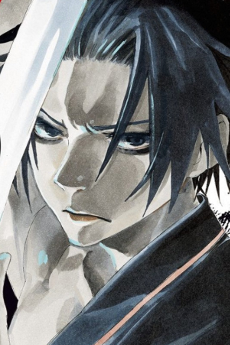
Shugen
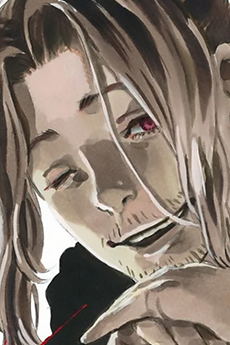
Jikka
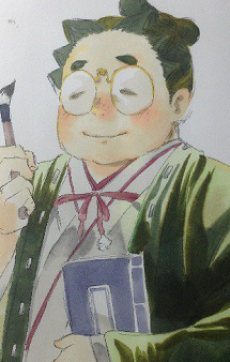
Senta
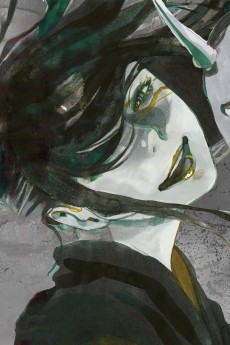
Shija
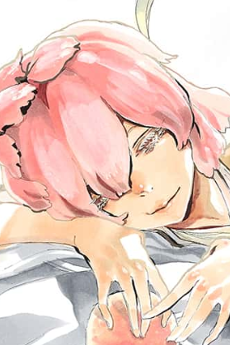
Tao Fa
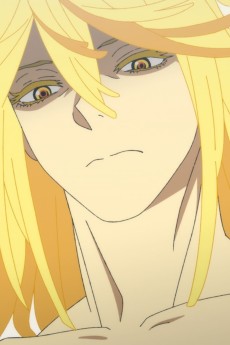
Ju Fa
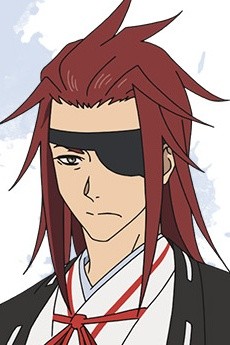
Eizen
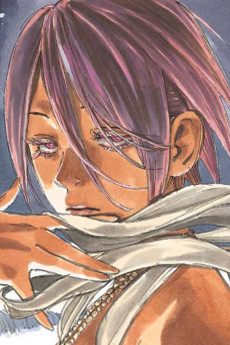
Rien
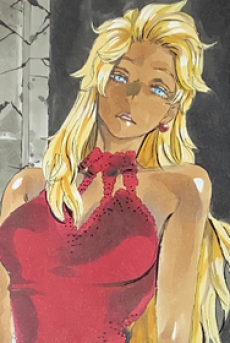
Isuzu
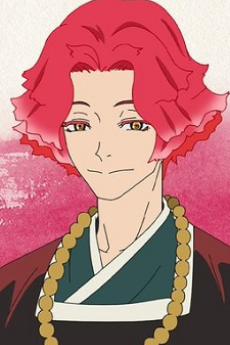
Mu Dan
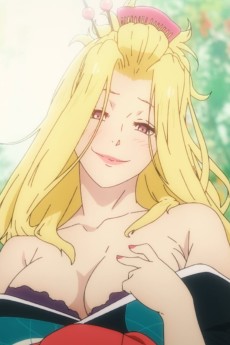
Akaginu
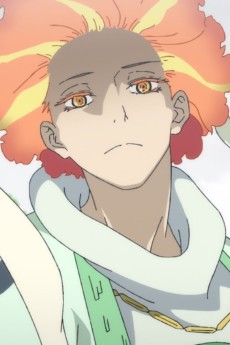
Zhu Jin
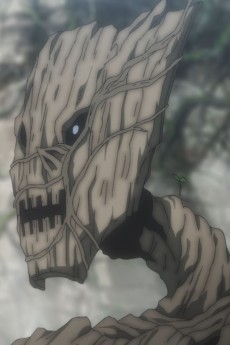
Houko
CHAPTERS
RELATED TO JIGOKURAKU
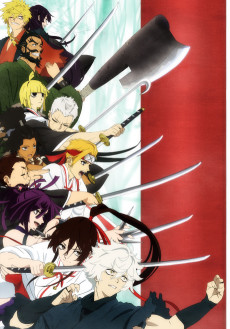 ANIME ActionJigokuraku
ANIME ActionJigokuraku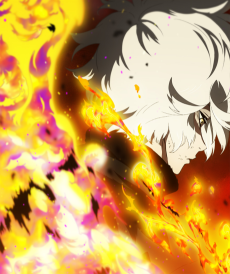 ANIME ActionJigokuraku 2nd Season
ANIME ActionJigokuraku 2nd SeasonREVIEWS

saulgoodman
85/100Botanical body horror, Buddhist battles and buxom babesContinue on AniListMan, talk about perfect timing. Just a week before its serial completion, it's been announced that Jigokuraku will receive an anime adaptation, and rightfully so. Along with Jujutsu Kaisen and Chainsaw Man, Jigokuraku is the final crux of what I like to call The Dark Three of Shonen Weekly. And interestingly enough, Yuuji Kaku once served as Fujimoto's assistant, making comparison discussion between their two series all the more worthwhile. Though its popularity has been overshadowed by Jujutsu Kaisen and Chainsaw Man, Jigokuraku has bared sizeable craftsmanship that should dispel doubts regarding its quality due its lower popularity. Featuring horror, gore, sensuality and interchanging sexual orientation; I fear the extent of the anime's censorship and can only clasp my hands and pray for a decent adaptation. However, even in the event of mediocracy, it'd be a shame for it to stop oneself from exploring the manga.
Spoilers ahead. Skip to the end for a short, spoiler-free review

My Beautiful Dark Twisted Fantasy Jigokuraku does a phenomenal job hooking in its readers within the first volume. Heck, the first chapter alone. The bait that fished me in first was the horror. Kaku specifically specializes in body horror, and impressively so. He characterizes the creaky, unnerving worldbuilding of Kotaku island with potent laces of Frankenstein amalgams of Buddhist statues, botanical bodies and miscellaneous creatures. In this regard, the series bore some resemblance to Gantz at both their early stages; the main characters forcibly thrust into a horrific world scattered with creatively strange monsters.
Another large part of the hook is the battle royale/survival premise. The initial plot of 10 inmates and 10 executioner overseers essentially trapped on an isolated island in search for a treasure instantly intrigued me. Characters are unapologetically vanquished in the midst of the initial confusion and competition, effectively downsizing the cast. And not to mention how fucking gas Gabimaru's introduction is, with his outlandishly phlegmatic escapes from execution, cool demeanor and wild powers.
Kaku doesn't stall for time or bullshit around. He slaps you in the face with the bloody and raw meat of the story well at the start, leaving no time for you to become bored and restless. Our protagonists' characters, goals, and the overarching premise of searching for the elixir of immortality are established faster than you could say "Jigokuraku? More like JiGOATkuraku".
Phenomenal Progression and Pacing The series' fast, yet stable pacing and solid progression are praiseworthy of a few rounds of applause. The story didn't fall in the common trap of swerving away from the original premise and into unnatural, foreign territory. Kaku wrote well enough that gave the elixir of immortality premise sufficient space that he could delve into deeper plot points, all connected back to the original premise with iron-clad threads. Kaku rarely deterred into awkward points or useless filler. Though the scarce times that he did, they didn't make a substantial dent in the general quality that he's built.
Though Jigokuraku features quite a large cast of characters, Kaku has made them all impactful to their peers and the story. He doesn't thoroughly characterize and develop everyone equally, but Kaku excellently has them all play a crucial role in the story and other characters' arcs. Both the criminals and executioners all have their smudged pasts revealed, slowly disregarding the initial pedestal of social class and the ethics code at the time in favor of budding friendships between the formerly wary and hostile groups. Faced with the crisis of survival on the bizarre island, their temporary and reluctant alliance steadily turns into mutual trust, care and amusing banter.
The common Achilles Heel, that is ending a series and refusing to kill off characters, has no effect on Kaku. Kaku unapologetically axes anyone he deems necessary to further the plot and characters, though restrains himself enough to prevent it from devolving into a stale bloodfest. As for the ending, he knew very well when and where to end his story, aware of the risk of unnecessarily dragging out the story. By the time of the ending, characters were developed enough, the climax has reached its peak and the action was mouth-watering. Kaku killed off the consequences of killing the story prematurely or too late, closing his well-paced story on a fantastic note.

A few issues Though I love this series, there's a prominent thorn in my side that prickled my experience. That, Jigokuraku is thematically compelling, but narratively compromised.
Now, I always strive to understand the author's intents and purposes in how and why they craft their story as it is, but my expectations occasionally clash with them. And in some parts in Jigokuraku, I felt wish-washy towards what they had to offer narratively and thematically. For example, my three main gripes consist of Gabimaru's wife being real or fake, Yuzuriha asspulling death and Sagiri's character.
For the first point, the Yui genjutsu plot point. I comprehended this as a growth supplement challenging Gabi's sole resolve to return home to his wife and to waver his then balanced footing in the "middle path", and I'll at least commend this as an interesting jab at character development. However, it just felt nonsensical and a cheap shot to de-power and conflict Gabi. And I think even Kaku realized this, as he tweaked it a bit later on as Yui simply faking her sentimentality. This idea both provided Yui more character potential and fit in much more naturally with Gabi's internal conflict of conditioned rationality versus newborn sentimentality. With the other two points, however, Kaku didn't as smooth over them just as well.
Many fans will likely share their conflicted joy and annoyance over Yuzuriha's revival. Kaku has done a fantastic job handling characters' deaths, but Yuzuriha is the single smudge on that record. Up until then, Kaku managed to give deaths meaningful context for both the deceased and others, an unforced execution that wasn't simply for shock factor or trolling and a beautifully unique death scene for each individual. Yuzuriha's was no different, which is why I have an immense gripe regarding it. Yuzuriha was a fun character to root for, with her enjoyable snaky nature and duality between flirtatious promiscuity and survivalist rationality. Her "death", however, finally offered a peer into a more genuine, tender side to her; namely her reminiscing over her final moments with her late younger sister. Yuzuriha's bitterly smiling at the memory gave one of the most bittersweet deaths in the story thus far and showed just how great Kaku was at writing characters, when I could be satisfied with one of my favorite characters dying.
However, Kaku unbuckled his pants and shat out a big one on such an emotional scene. Even if he did give reasonable context to her asspulling, I didn't see any purpose in her cheating death, thematically or narratively. This was by far the most disappointing points in the story that I'm unable to defend.
And lastly, Sagiri. I'm most conflicted on this point. Sagiri's introduction was great. Her cool, strict demeanor was quickly contrasted by her inner turmoil, struggling to carry out the Asaemon clan's duties due to her habitual fear of delivering death, the expectations of her as a woman and the burden of the Asaemon name. Partnered with the unhesitant and headstrong Gabimaru, Sagiri showed great promise in development. However, I was severely disappointed.
I believe her downfall started with the Rokurōta fight. There was nothing wrong with her in this fight, per se, but how her power was characterized. Tinges of annoyance pricked at me when characters were explicitly stating how Sagiri is actually strong, rather than simply letting her demonstrate it. I wouldn't have minded this as much if Sagiri's promise shined from thereon out. However, for a long time, Sagiri's character was effectively reduced to a Gabimaru stan. The few fights she's had were compromised greatly by her immense concern for Gabimaru. Their mutual trust relationship felt as if it turned into mother-son sometimes. Sagiri's character was being redefined from her insecurities to how Gabi has saved her, needs help, etc.
Gabimaru and Sagiri's relationship was well done, but it had detrimental effects on Sagiri's character as an individual. There were a few great moments for development, such as the Sagiri-Shiji fight. Unfortunately, they were wasted, as Gabimaru came to save the day. This mutual trust relationship they had benefitted Gabimaru by miles, as it served as a steady steppingstone for his emotional rebirth, while Sagiri showed unsteady progress as Gabimaru progressively invaded her thoughts. Her goal from quelling her hesitance and burden of the Aesemon name was replaced by her feverishly desire to reunite Gabimaru and Yui.
While she has a MASSIVE cathartic payoff at the end, her overall character had left much desired for myself. Almost all of her actions seemed to do with Gabimaru, overemphasizing their mutual trust and support. However, perhaps Kaku intended for Sagiri's character to be a slow-burning and tedious one all for some sweet, sweet catharsis. In that case, then I suppose Sagiri was well-done but utterly unenjoyable nonetheless.

True Religion Now that I've gotten that load off my chest, I'll uplift the mood by discussing one of my two favorite aspects of Jigokuraku; the religious and cultural coalescence.
Kaku incorporates Buddhism and Taoism in various parts of the story, vastly enrichening the worldbuilding despite it being on a meager, desolate island. He often utilizes esoteric terms stemming from the two, but they're easy-to-understand flavor text.
The most explicit incorporation of religion is seen through the early monsters. Even for the most ignorant, these statue-esque, serenely smiling and prayer-hand posed monsters are obviously meant to be Buddhist caricatures. Kaku manipulates these lovingly peaceful figures into creepily frightening with skillful ease. Repeating the same chants over and over, deep shadows casted on their smiling faces and their hybrid forms mixed with animals and plants; practically nothing holy remains in these creatures.
A prominent exploration of Taoism is demonstrated through the power system. The power system itself is fairly easy to understand, centering around a nature-cycle of strengths and weaknesses, such as fire strong against metal and weak to water, and tao, a Taoist term referring to energy in all forms of creation. These both gave great structure in the fights, as the life-threatening fights forced our criminals and executioners to learn and adapt to this new power source, and utilize their already battle-hardened experience for enjoyable strategies and techniques to give their pseudo-immortal enemies a run for their money.
Getting back on track, Kaku implements the concept of tao to additionally and primarily supplement the overarching theme of balance. One of the most common internal conflicts that plagues the characters is their clouded state of mind. Whether it be Gabimaru's tug-of-war between cold rationality and lukewarm sentiment, Sagiri's insecurity and indecisiveness, Shion's immense thirst for vengeance or Nurugai's guilt for her clan's slaughter; many of the characters are on a journey of not only survival, but enlightenment. Reigning in their tao power heavily depends on their state of emotions. Dipping towards emotional extremities causes one to waver in power, resulting in the characters' strive to maintain a serene, calm mind and avoid those extreme emotions; or more properly referred to as "The Middle Path".
Originally, I found the power leveling of this series somewhat inconsistent and impartial to our protagonists. However, understanding the philosophical context behind tao and the other Taoist/Buddhist esoteric terms changed my opinion. Though Lord Tensen had a few millennium's worth of time to hone and perfect their tao, they were walking parallel to The Middle Path. In Buddhism, the concept of The Middle Path also exists, conversely referred to as "The Noble Eightfold Path". The two extremities Buddha describes are sensual gratification and asceticism. Lord Tensen was described to indulge in different research methods of immortality, such as sexual union, martial arts, breathing, etc. The pure extent of their indulgence in a sole practice meant they were permanently fixated on either of the extreme poles described in Buddhism, thus they could never attain The Middle Path in their blind pursuit of immortality. However, our comparatively newborn protagonists, though amateur in tao, took unsteady, yet firm steps towards The Middle Path. Ironically, their mortality and humanity are what bested immortality. The imperfect, emotional nature of humans doesn't allow a permanent fixture on one extremity or another, but it's constantly and erratically tipping due to human irrationality and rampant emotions that Lord Tensen lacks. For Gabimaru, his embracement of weakness and sentimentality birthed great power. For Sagiri, her embracement of doubt and indecisiveness allowed to her give an extremely satisfying blow to the final enemy.
An additional praiseworthy aspect of this series is its sexual depictions. Many ecchi or sexually explicit series tend to lie on either a pole defined by redundant, slapstick panty-shot comedy or tasteless, eye-roll inducing, edgy depravity. However, Jigokuraku's fanservice isn't some cheap crowd appeasement, instead supplementing the religious/philosophical themes and has a fitting adult charm. The sensuality goes as deep as fornication as a means of immortality/representing the concept of Yin and Yang, and Yuzuriha's seductive antics :smirk:

Raw Ink And what's my other favorite aspect of Jigokuraku? It's the art.
I can best summarize Kaku's art as akin to calligraphy art. There's always an organic sense to his artwork that you can feel down to your core; from his wild brush strokes to the mingling of light and heavy lines to the thick and oozing black. Instead of detailed, Kaku's art more so exudes power. The action sequences and fights are superbly elevated by this dominating rawness, breathing life into the heavy sword swings, supernatural attacks and devastating blows.

This rawness carries over just as well into the character designs and facial expressions. In an interview about Jigokuraku and Kaku, Fujimoto gave a wonderful comment regarding them:
"What I find impressive about Jigokuraku is the shadows drawn on the characters. It’s hard to explain, but when you try to draw emotions on a character, it becomes a bit too much if you draw in a lot of facial expressions. But adding in shadows doesn’t make it overwhelming. I think Jigokuraku draws this in a really good way."
Kaku manages to convey tone and emotions through his distinct and powerful rawness, rather than fine details. There truly is a compromise of fine detail for strength in Kaku's art and designs. Not to insinuate there's a weakness in this, he can just as well convey subtlety and emotions plastered on the characters' faces and body movement just as well as any other great artist. Though, his background art occasionally peaks with both power and fine details.
The gore and horror? Top-notch. Absolutely great. Kaku's art flourishes with beauty and horror. It embodies dichotomy on several levels. The euphoric expressions on the flowered faces of the island's victims pricked my skin with goosebumps. His creative monstrous designs were a strong factor in the world-building at the start, explicating the creeping horror. The gore, though less impactful than the body horror, is a chaotic cesspool of angst and wildness.
Knowing that he's Fujimoto's former assistant, you may find yourself comparing the two authors' art. In their interviews regarding each other's works, their analyses are accurately tight. I strongly recommend reading them if you love their art just as much as I do! Kaku also posts some amazing colored art on his Twitter, which I'll be linking, as well.



Conclusion Jigokuraku shines as one of the richer shonen series in the recent years. Kaku built a very solid story structure with fast, yet stable pacing that left me no time for dreariness. Though I found that he compromised narrative value for thematic, and a bit poorly on occasions, this proved little of a hinder to my overall enjoyment of his craft. His quick hook came with horror and strong characterization, laying down the foundation of Jigokuraku's world-building in the blink of an eye. The action, body horror and promising characters will leave you with a burning thirst for more right from the get-go. Between the start and ending, the various plot points sufficiently contributed to the overarching plot and smoothly transitioned into the next. The ending was a true sigh of relief. Kaku didn't prematurely kill off the story nor insist on dragging it out past its death.
What elevates the story and world-building, is Kaku's strong incorporation of Eastern religion and philosophy. Namely, Taoism and Buddhism. Regardless of accuracy, they become extremely intriguing and firm pillars for the story. The original premise, the plot points, the ability system, the villains, the setting; they all connect to the philosophical and religious schools. Even for something as subtle and personal as character development, as well.
Kaku's art is a staple highlight of the series. Reminiscent of calligraphy art, Kaku's art can be defined by just three words. Bold. Powerful. Raw. He elevates the otherworldly fights with erratic brushstrokes, thick blackness and frantic vector lines unleashing kinetic energy. His creepily creative mind is demonstrated from the monsters' and villains' designs, using his pen to crossbreed different species and morph humanoid bodies in a Frankenstein fashion. And, of course, Kaku ensures the thirst for attractive female designs is thoroughly quenched. He maintains a balance of cuteness and strength in Sagiri and Yuzuriha's designs, while also drawing up some unique and cool designs for the males. Kaku strived for strength and horror in his story, and he very well achieved them through his art alone.
With the anime adaptation announced recently, I've been regressed to an obese child with diabetes in the candy store. My abiding love for body horror and shonen that started as a kiddie crush with Bleach as a child, bloomed into heart-aching love with Jujutsu Kaisen ,Chainsaw Man and Jigokuraku. Pray for some fucking kinoooooo


Bluetaku
84/100"In order to obtain strength, one must first accept his weaknesses. Balance is what makes us strong." ~ JigokurakuContinue on AniListJigokuraku is currently known as the underdog of the "Dark Three", consisting of Akutami's Jujutsu Kaisen, Fujimoto's Chainsaw Man and obviously Kaku's Jigokuraku. The series never had it easy especially because of it's absolutely brilliant competetors but in my opinion it has still managed to establish itself as a series of it's own. Let me start by talking about the premise.
We start out at an execution site where a certain Gabimaru the Hollow is supposed to be executed by a swordswoman of the Yamada Asaemon clan called Sagiri. She tells Gabimaru about a voluntary mission issued by the shogun himself that if fulfilled shall grant one a pardon. Gabimaru wants this pardon in order to return to his peaceful days living with his wife after effectively retiring from being the most fearsome ninja to ever come out of the infamous village of Iwagakure. Gabimaru and Sagiri take on this mission with a bunch of other Yamada clan executioners and death row convicts. This mission is to venture to a certain Island that is said to be in posession of something called the elexir of life. This elixir obviously is the main goal of the mission but things are not quite as simple as it turns out. The Island is home to otherworldly creatures that resemble religious symbols and use some type of power that is unknown to us at the beginning of the story. We then get to see this entire Island be unravelled before our own eyes as the story progresses and we make our way toward the elixir without dying beforehand. This premise is what allows the story to feel different from the other two as it sets up a major mystery element right from the get-go.
Speaking of mystery, world building is the next aspect that I want to talk about. In short, it is absolutely brilliant and more than takes it's time. Everything feels natural and just helps the flow of the story. I won't get into detail about it but just know that there is always more to it no matter how much you think you already know.
Then there is the strongest aspect about the entire series in my opinion. The characters. What can I say... they are just amazing, from Gabimaru and Sagiri to especially Yuzuriha, Shion and Gantetsusai. Their dynamics are what makes the story as enjoyable to read as it is. Very funny but also serious moments in the face of danger. Speaking of danger, the lord Tensen as we know them also make for good villains. Definitely not the best nor most fleshed out especially when comparing it to Jujutsu Kaisen and Chainsaw Man once again but still worth mentioning.
Then there is the art. The art of Jigokuraku definitely is above average. It can be quite messy at times but more often than not you will be able to clearly see what is going on. Also the Author really got creative when it comes to the designing part. Everything looks incredibly unique and fresh.
I now want to talk about the ending. It was a pretty perfect ending in my opinion that left no one unsatisfied. Surely it was not some kind of genre defining masterpiece of an ending but it definitely cleared everything up and delivered us with execly what we wanted.Now as for my personal feelings toward the story. I was really invested in the beginning of the story but slowly lost interest halfway through. That interest sadly only really came back at around chapter 95 thus resulting in myself not enjoying the middle part of the story as much as I could have because it was definitely not bad. Another thing that I noticed is how little I cared about the characters for the most part but in the end it still made me really sad to part ways with each and everyone of them (except for shugen, fuck shugen, all my homies hate shugen). I thought I hadn't grown attached to them but I found myself shocked at multiple occasions when a character I thought I didn't care about almost died or even actually did die. Oh god I am so fucking happy that Yuzuriha made it through the story, I just love her so much damn.
Well anyways, this will do it for this semi-long review and my thought on Jigokuraku. It is definitely a story that I will remember reading and am looking extremely forward to the confirmed anime adaptation. Well I guess all that's left to say is thank you Yuuji Kaku sensei! It has been a fun ride.

yiendubu
75/100Wasn't amused, but it was still a very enjoyable readContinue on AniListSpoilers ahead!  After having faced more peer pressure than I ever have to read Hell's Paradise, I finally gave in. And you know what, no matter what criticism about it I point out throughout this review, I actually had a blast reading it. It's one of those series that's so bizarre, you overlook the flaws on your initial read.
A bunch of criminals are dumped on an island with their samurai supervisors, to look for the elixir of life. Where do we go from there? Well, we establish our main characters of course! The MC Gabimaru is initially presented as hollow, and it's made out to be a pretty big deal. Only for him to do a 180 in like 3 chapters because he..loves his wife? Don't get me wrong, on its own, that's a great idea. I just felt like more flashbacks of his time with Yui(his wife) and perhaps more of his inner thoughts were needed. I found it hard to believe he's that head over heels for her so early in the story. Kaku later fixes that problem, by making him talk more about her and showing us more of their time together, but to me, it came off as an “Oh I screwed up let's fix it!”.
After having faced more peer pressure than I ever have to read Hell's Paradise, I finally gave in. And you know what, no matter what criticism about it I point out throughout this review, I actually had a blast reading it. It's one of those series that's so bizarre, you overlook the flaws on your initial read.
A bunch of criminals are dumped on an island with their samurai supervisors, to look for the elixir of life. Where do we go from there? Well, we establish our main characters of course! The MC Gabimaru is initially presented as hollow, and it's made out to be a pretty big deal. Only for him to do a 180 in like 3 chapters because he..loves his wife? Don't get me wrong, on its own, that's a great idea. I just felt like more flashbacks of his time with Yui(his wife) and perhaps more of his inner thoughts were needed. I found it hard to believe he's that head over heels for her so early in the story. Kaku later fixes that problem, by making him talk more about her and showing us more of their time together, but to me, it came off as an “Oh I screwed up let's fix it!”.
 Once the story really settles, there's a wonderful set of characters. Distinct personalities, fun designs, and interactions. My favorites ended up being Yuzuriha, Gabimaru, and Chobe. A kunoichi that has tricked people so much she can't even trust others, a cold-blooded killer with a soft spot, and an angry but smart meathead? Sign me up! Aside from these three, Sagiri really stood out to me. Not because I liked her character arc that much, but because Yuji Kaku devoted himself to writing a good female lead. This should be the norm but it's not, so I wanna praise him for it. She's strong but allowed to be vulnerable. She didn't fall in love with Gabimaru either, which is a well-known cliche in this kind of story(In fact if I had to pick a love interest for her, it would be Yuzuriha. So much chemistry!). The main message of Jigokuraku is that weakness and strength are very interconnected, one can't exist without the other, and I think out of the whole cast, Sagiri embodied that the most.
The way the characters began to slowly care about each other, reminded me so much of the first Guardians Of The Galaxy movie. Timeless trope, that was executed really well here. Whenever they would help or work together with the person they were ready to kill some chapters ago, it made me smile.
The antagonists in this series..well they certainly were there! Honestly, they managed to not leave an impression at all, I can't recall any of their individual names besides Rien. Nothing that special visually, almost non-existent motivations(and the one that did have a motive, had a beyond stupid motive). The Tensen are definitely not going into my top villain groups list. I gotta admit that they're pretty cool when they turn into monsters though.
The pacing was great, aside from the last arc. I felt like it was dragging out. Also couldn't see the point in introducing Shugen? He was annoying and did not contribute much, but that could just be me.
Once the story really settles, there's a wonderful set of characters. Distinct personalities, fun designs, and interactions. My favorites ended up being Yuzuriha, Gabimaru, and Chobe. A kunoichi that has tricked people so much she can't even trust others, a cold-blooded killer with a soft spot, and an angry but smart meathead? Sign me up! Aside from these three, Sagiri really stood out to me. Not because I liked her character arc that much, but because Yuji Kaku devoted himself to writing a good female lead. This should be the norm but it's not, so I wanna praise him for it. She's strong but allowed to be vulnerable. She didn't fall in love with Gabimaru either, which is a well-known cliche in this kind of story(In fact if I had to pick a love interest for her, it would be Yuzuriha. So much chemistry!). The main message of Jigokuraku is that weakness and strength are very interconnected, one can't exist without the other, and I think out of the whole cast, Sagiri embodied that the most.
The way the characters began to slowly care about each other, reminded me so much of the first Guardians Of The Galaxy movie. Timeless trope, that was executed really well here. Whenever they would help or work together with the person they were ready to kill some chapters ago, it made me smile.
The antagonists in this series..well they certainly were there! Honestly, they managed to not leave an impression at all, I can't recall any of their individual names besides Rien. Nothing that special visually, almost non-existent motivations(and the one that did have a motive, had a beyond stupid motive). The Tensen are definitely not going into my top villain groups list. I gotta admit that they're pretty cool when they turn into monsters though.
The pacing was great, aside from the last arc. I felt like it was dragging out. Also couldn't see the point in introducing Shugen? He was annoying and did not contribute much, but that could just be me.
 Hell's Paradise is a stunning series. Yuji Kaku took unconventional horror to the next level. I might actually be scared of flowers now. The island looked terrifying, and at the same time had something beautiful about it. Truly, hell in paradise. I also love the way Kaku colors his spreads. There's something special about them, maybe it's in the way he shades.
Its other strength is fight choreography. As someone whose favorite series doesn't really shine in that department, I appreciate it. Any fight involving the ninja Gabimaru and Yuzuriha was a pleasure to read. I've been watching Naruto for several months now, but the characters there just don't measure up to Gabimaru and Yuzuriha. These two definitely feel more like “real” ninja.
Hell's Paradise was a letdown because I went into it with too high expectations. It's not the second coming of age, but it's still an awesome series that is a must-read. Looking forward to more Yuji Kaku craziness in his new series Ayashimon!
Hell's Paradise is a stunning series. Yuji Kaku took unconventional horror to the next level. I might actually be scared of flowers now. The island looked terrifying, and at the same time had something beautiful about it. Truly, hell in paradise. I also love the way Kaku colors his spreads. There's something special about them, maybe it's in the way he shades.
Its other strength is fight choreography. As someone whose favorite series doesn't really shine in that department, I appreciate it. Any fight involving the ninja Gabimaru and Yuzuriha was a pleasure to read. I've been watching Naruto for several months now, but the characters there just don't measure up to Gabimaru and Yuzuriha. These two definitely feel more like “real” ninja.
Hell's Paradise was a letdown because I went into it with too high expectations. It's not the second coming of age, but it's still an awesome series that is a must-read. Looking forward to more Yuji Kaku craziness in his new series Ayashimon!
SIMILAR MANGAS YOU MAY LIKE
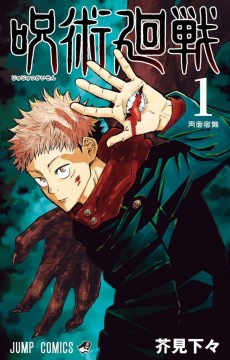 MANGA ActionJujutsu Kaisen
MANGA ActionJujutsu Kaisen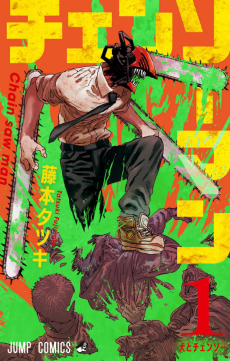 MANGA ActionChainsaw Man
MANGA ActionChainsaw Man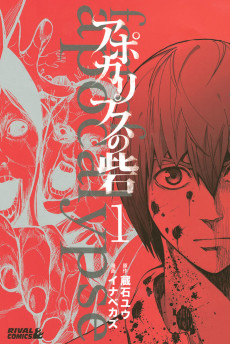 MANGA ActionApocalypse no Toride
MANGA ActionApocalypse no Toride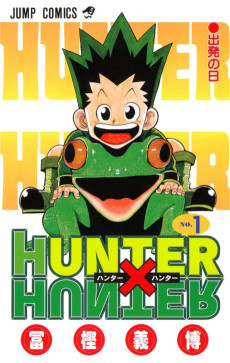 MANGA ActionHUNTER×HUNTER
MANGA ActionHUNTER×HUNTER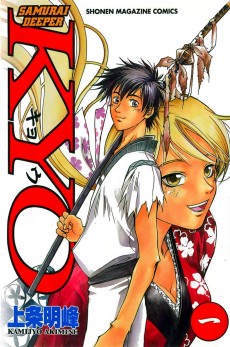 MANGA ActionSAMURAI DEEPER KYO
MANGA ActionSAMURAI DEEPER KYO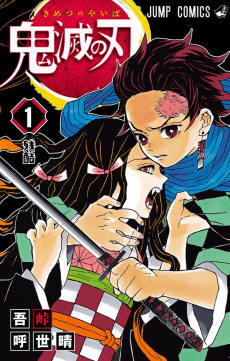 MANGA ActionKimetsu no Yaiba
MANGA ActionKimetsu no Yaiba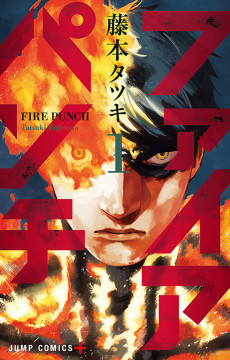 MANGA ActionFire Punch
MANGA ActionFire Punch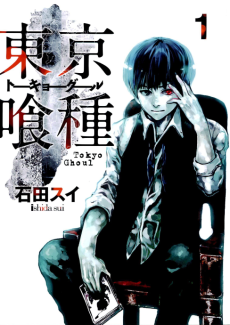 MANGA ActionTokyo Ghoul
MANGA ActionTokyo Ghoul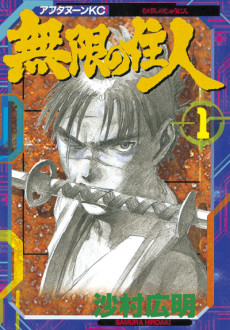 MANGA ActionMugen no Juunin
MANGA ActionMugen no Juunin
SCORE
- (4.1/5)
TRAILER
MORE INFO
Ended inJanuary 25, 2021
Favorited by 5,326 Users
Hashtag #地獄楽

